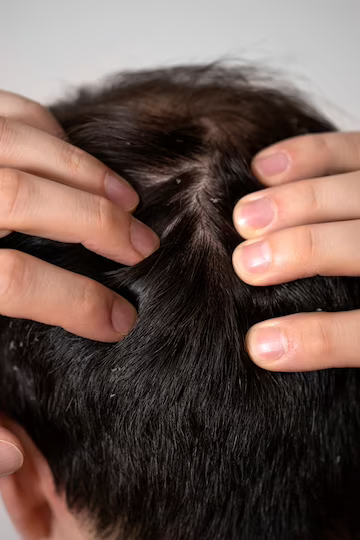Dandruff and dry scalp are common scalp conditions that affect people worldwide, including those in South Africa. These conditions can cause discomfort, itchiness, and embarrassment, leading to an overall negative impact on one’s hair and self-confidence. However, with proper understanding and targeted care, you can effectively address and manage dandruff and dry scalp issues. In this article, we will explore the causes of dandruff and dry scalp, as well as provide practical solutions tailored to the unique needs of individuals in South Africa.
Causes of Dandruff and Dry Scalp:
- Malassezia: Dandruff is often caused by an overgrowth of a yeast-like fungus called Malassezia, which is naturally present on the scalp. This overgrowth can lead to scalp irritation, excessive flaking, and itching.
- Dry Scalp: Dry scalp occurs when the scalp lacks sufficient moisture, leading to tightness, itchiness, and flaking. Factors such as cold weather, harsh shampoos, excessive heat styling, and improper hair care routines can contribute to dry scalp.
Addressing Dandruff and Dry Scalp:
- Use Anti-Dandruff Shampoos: Choose shampoos specifically formulated to target dandruff and scalp dryness. Look for active ingredients like zinc pyrithione, ketoconazole, selenium sulfide, or coal tar, which help control the growth of Malassezia and reduce dandruff flakes. Use the anti-dandruff shampoo as directed and give it time to work, as consistent use over a few weeks may be necessary to see noticeable improvements.
- Moisturize Your Scalp: To address dry scalp, focus on moisturizing and nourishing the scalp. Use conditioners or scalp oils that contain hydrating ingredients like aloe vera, shea butter, coconut oil, or jojoba oil. Gently massage these products into the scalp to improve moisture levels and alleviate dryness. Avoid applying heavy products directly to the hair roots to prevent product buildup.
- Avoid Harsh Hair Products: Certain hair care products, such as shampoos with sulfates, can strip the scalp of its natural oils, exacerbating dryness and dandruff. Opt for mild, sulfate-free shampoos that are gentle on the scalp and hair. Additionally, minimize the use of heat styling tools and protect your scalp from excessive heat to prevent further dryness.
- Maintain a Healthy Diet: Eating a well-balanced diet can contribute to a healthy scalp and hair. Include foods rich in omega-3 fatty acids, such as salmon, flaxseeds, and walnuts, as these help reduce inflammation and promote scalp health. Additionally, ensure you’re consuming enough vitamins and minerals, including zinc and vitamin B, which are essential for maintaining a healthy scalp and preventing dandruff.
- Practice Good Hair Hygiene: Maintain a regular hair washing routine to keep your scalp clean and free from excess oil and buildup. However, avoid over-washing, as this can strip the scalp of its natural oils and exacerbate dryness. Find a balance that suits your hair type and scalp condition. Gently massage your scalp during washing to stimulate blood circulation and remove dead skin cells.
- Manage Stress Levels: Stress can worsen dandruff and dry scalp conditions. Engage in stress-reducing activities such as exercise, meditation, or hobbies to help manage stress levels. Adequate sleep and relaxation techniques can also contribute to scalp health.
- Seek Professional Advice: If dandruff or dry scalp persists despite your efforts, it may be beneficial to consult a dermatologist or trichologist. They can provide a thorough examination of your scalp and recommend specific treatments or prescription medications, if necessary.
By implementing these strategies, you can effectively address dandruff and dry scalp issues in South Africa. Remember that consistency and patience are key when managing scalp conditions, as it may take some time to see improvements. With proper care and attention, you can achieve a healthy, balanced scalp, and restore confidence in your hair’s overall appearance.










